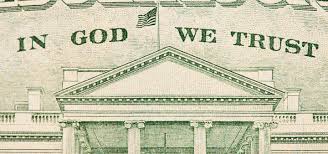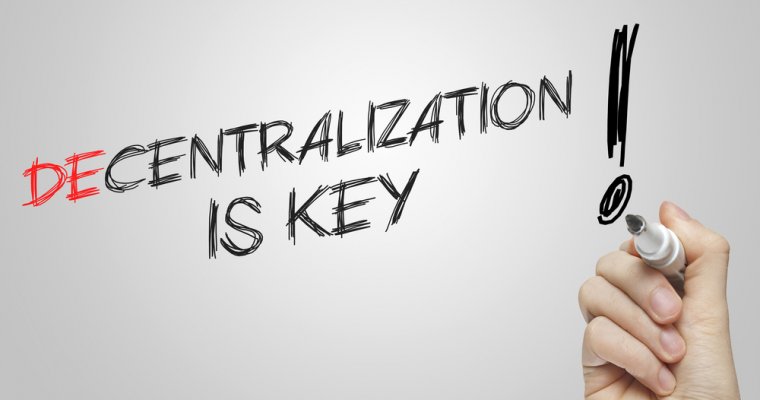Bitcoin is not about money!
Many people think about bitcoin as some magical internet money. The enthusiast are in it because they want to get rich quick, the pessimist think that we already have paypal and the whole thing is just a overhyped bubble. Both parties could not be wronger.
The revolution of bitcoin is not about money, it is about trust, or more specific the lack thereof. Since the beginning of humanity there was a trust issue that had to be solved in some way. Below the Dunbar number it is possible to personally know all the actors and you simply decide who you want to trust. But above Dunbar number the default is to have no trust and thus it makes interactions and organisation difficult on these scales.
Without a solution for the lack of trust humanity is stuck with an organisation of small tribes of a typical size of up to 150 people. Historically this obstacle was overcome by forming central trusted authorities. You have to trust the king to not screw you over to much, but then you are able to do business with everyone else also under the authority of your king. You do not have to trust the other people, you only trust that they have as much fear of the king as yourself and that means that deals between strangers obtain some security.
This idea of centralising trust has been refined up to the present time where we trust our national states. We trust our judges to implement the laws as written, we trust the police to protect us. This then allows us to make deals and organise with people that we do not trust personally.
The true revolution of bitcoin is providing an alternative to these trust based systems. First bitcoin is just a ledger of who owns what. I could write such a ledger on papyrus, claiming I own three sheep from the meadow next to my house. The problem is that my neighbour can make his own ledger and if that says that he owns one of these sheep we would require some commonly trusted authority to settle our dispute. The magic of bitcoin is that using cryptography and proof of work algorithms no such authority is required. We each have our ledgers and a decentralised system based on the combined actions of all participants solves disputes about these ledgers in a natural and predictable way.
Complete strangers, who dont trust each other and all want to have as many bitcoin as possible can, without a central authority, always come to the same conclusion of who owns what. Just thinking about that is absolutely crazy.
Now you can argue that we only agree on the amount of bitcoin and not the amount of sheep. That is correct, but bitcoin already has a corresponding real world value. One bitcoin is trading at around 10000$! So when I can claim that I own one btc that is a very meaningful statement. Letting bitcoin decide over the distribution of real world property has already been demonstrated when btc first obtained a free market value.
But bitcoin is just the start. It has shown that the issue of trust can be solved and that it can not only be done online, but it can be linked to offline property. Replacing trusted money with bitcoin is only the very first idea for this technology. And that idea alone will have massive consequences in the coming years. What else we can do with this technology is almost beyond our imagination. Everything we have learned in history or politics classes in school is based on the assumption that there is a trust issue in human organisation. With our brains trained to think in that way it is very hard to even imagine how human interaction could work out given that trust finally has been solved.
For example police versus private security firms. Most people don't like the latter very much since they do not trust them. Now take away that issue and we may be heading to completely new solutions for security.
Blockchain challenges the entire centralised organisation of people in national states. The only thing a states provides at a fundamental level is trust; plus some amount of human stupidity on top of that. While banks are already outdated with current technology, states will certainly be questioned by the next generation blockchain developments.
In bitcoin conflicts are solved by clearly specifying who can do what. The rules are very simple. You can do whatever you what with your BTC and nothing with all other BTC's. In addition participation is voluntary. If you dont like bitcoin then dont use them. But then you also will not benefit from the advantages of the technology.
For social organisation these rules need to be more complex, but at the heart of the development will be clearly specifying the competencies of individuals in a flat network of peers. And just like for bitcoin, participation in these networks will be voluntary. If you violate these key features, then you necessarily introduce centralisation and consequently you are not solving the issue of trust. Beyond these basic features imprinted at a fundamental level in the technology nobody knows what the future will bring. But it is likely going to be a massive step forward for humanity.
.jpeg)
.jpg)

And this is why the central bankster crypto will fail.
They will try to make it look like bitcoin, with more bells and whistles, but it will lack the transparency and the trustless system, and thus will fall flat on its face.
The banksters will never figure out why their crypto failed.
Yes. It is about trust. Bitcoin create trust through a market. People trust in the market. People trust that someone is going to value a cryptocoin when they want to exchange it. But there are also other ways to create a payment system based on trust.
Trust exists between people. You trust your friends. Your friend trust someone else that in turn trusts someone else. These trust-chains create a possibility to pay a stranger.
The idea was called Ripplepay (and Ripple) before the Ripple crypto currency was created. Many confuse the two ideas. The Ripplepay idea is about creating a fully decentralized payment system without using a market.
Yes absolutely. Bitcoin realises trust by proof of work. Ripple or Stellar use links of trust, where in theory every link should be realised below the Dunbar number. In practice this is very unlikely to work due to liquidity issues and laziness, but since you can choose who to trust, bad actors will be filtered out anyways.
So there are multiple options for solving trust available right now and i guess different options will be used for different applications
And Circles.
https://joincircles.net/
It is going to get interesting now that exchanges are being shut down by governments around the world. I personally think the trustchain-based models are going to take over more and more as a result. The exchanges are unnecessary points of failure. And Bitcoin is unnecessarily centralized around the exchanges.
It is very exciting times we live in. I enjoy reading about all ideas related to mediation of trust.
Great way to lay out the fundamentals of the importance of the blockchain technology and how it will impact society in several ways. Trustless ledgers for more trust in society, and more freedom free from centralized control hehe.
Blockchains only make sense where trust is an issue. Blockchains only make sense if they are decentralized. Everything else is just stupid (and we see a lot of stupid "its own blockchain" stuff). Government will be massively disrupted.
Maybe bitcoin is not about the money but about the trust, but trust is an asset and assets are worth money therefore Bitcoin is also about the money. Anything in this world can have assigned value, Bitcoin is no different. Investing in 'trust' is still an investment, like in anything else.